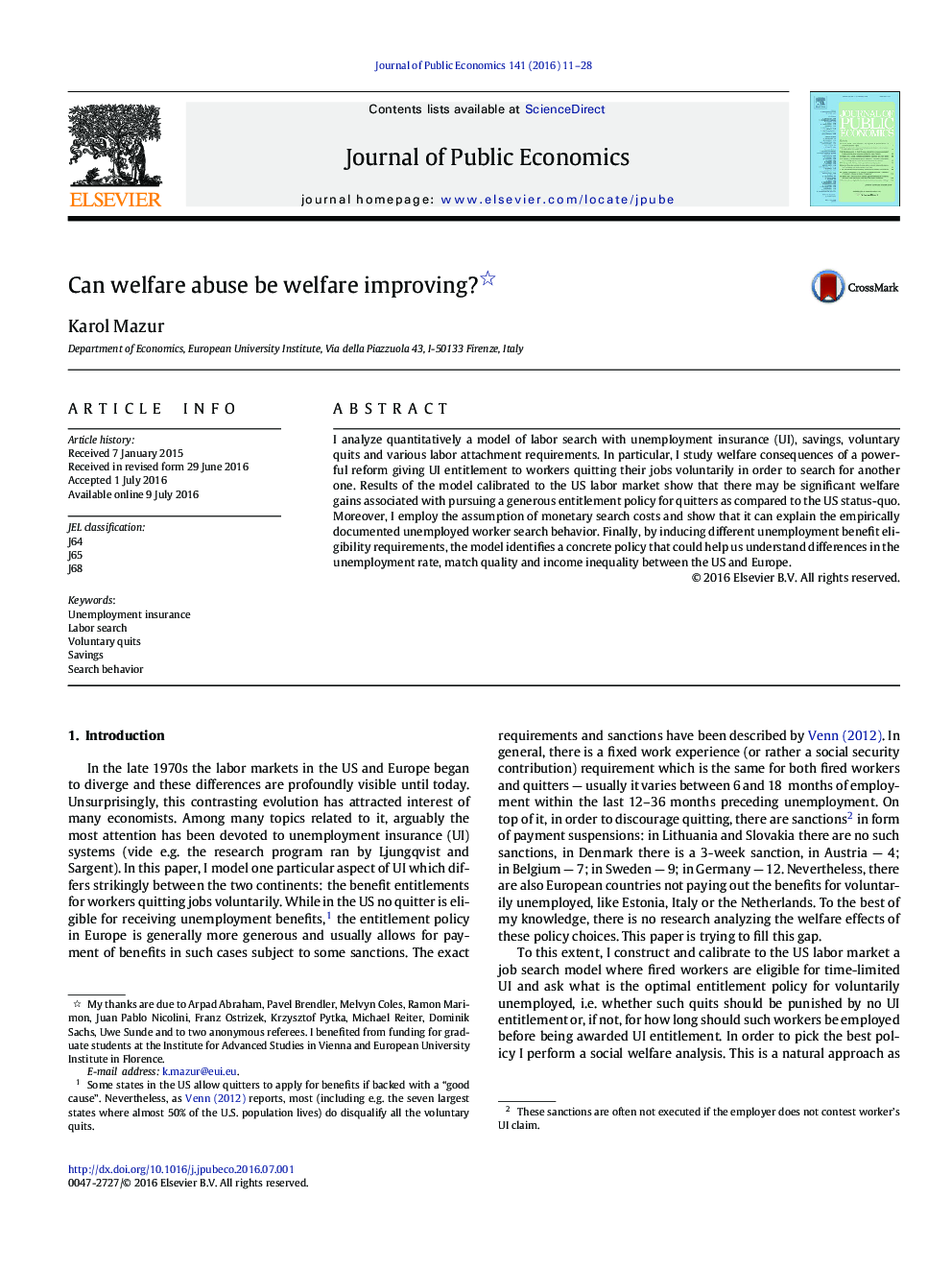| Article ID | Journal | Published Year | Pages | File Type |
|---|---|---|---|---|
| 968560 | Journal of Public Economics | 2016 | 18 Pages |
•I study the unemployment insurance reform giving entitlement to quitters.•I find that it may be associated with a significant increase in long-run welfare.•The policy leads to an improvement in match quality and reduction in inequality at the same time.•I investigate the assumption of monetary job search costs.•I find that it can explain the documented unemployed worker search behavior.
I analyze quantitatively a model of labor search with unemployment insurance (UI), savings, voluntary quits and various labor attachment requirements. In particular, I study welfare consequences of a powerful reform giving UI entitlement to workers quitting their jobs voluntarily in order to search for another one. Results of the model calibrated to the US labor market show that there may be significant welfare gains associated with pursuing a generous entitlement policy for quitters as compared to the US status-quo. Moreover, I employ the assumption of monetary search costs and show that it can explain the empirically documented unemployed worker search behavior. Finally, by inducing different unemployment benefit eligibility requirements, the model identifies a concrete policy that could help us understand differences in the unemployment rate, match quality and income inequality between the US and Europe.
